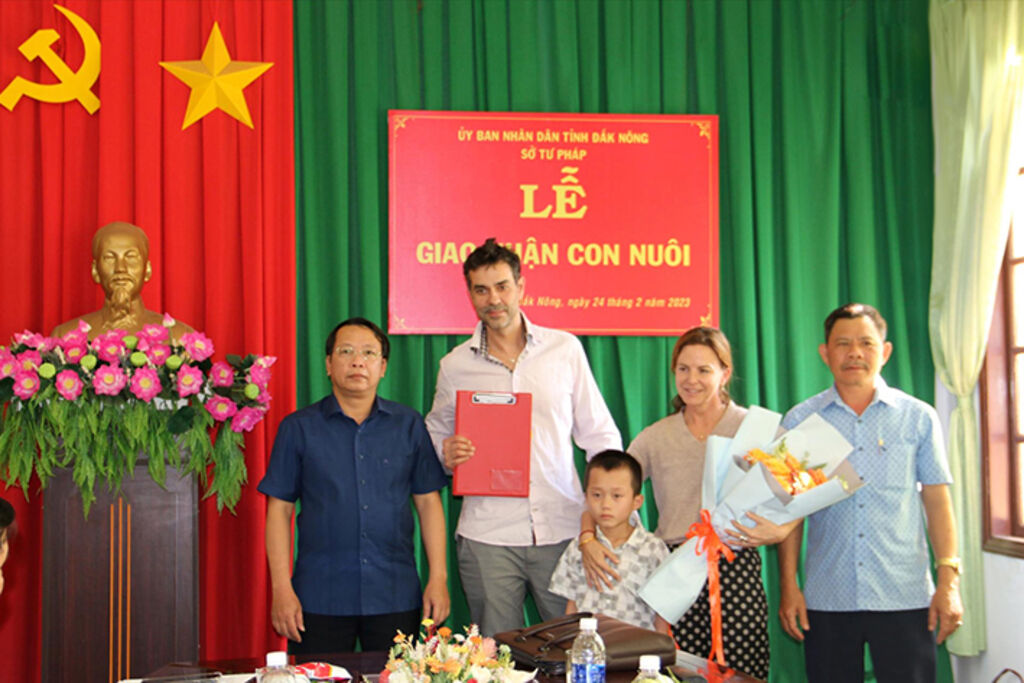
Adopting a child is a profound and life-changing decision that extends beyond personal desires, reflecting a commitment to providing a stable and nurturing environment for a vulnerable individual. In Vietnam, the procedure for adopting children is shaped by a blend of cultural values, legal frameworks, and humanitarian considerations. This process involves multiple steps designed to ensure the best interests of the child are prioritized, while also adhering to international standards and local regulations. As Vietnam continues to evolve in its approach to adoption, understanding the intricacies of this procedure is essential for prospective parents, social workers, and policy makers alike.
1. Conditions for Registering as an Adoptive Parent
To register as an adoptive parent, individuals must meet the conditions specified in Clauses 1, 2, and 3 of Article 14 of the 2010 Law on Adoption in Vietnam, as follows:
- Full Civil Capacity: The adoptive parent must be an adult with full civil capacity, not suffering from mental illness or other diseases that limit cognitive ability. This ensures their ability to establish and perform civil rights and obligations, which are crucial for ensuring the best conditions in terms of economic stability, education, and upbringing for the adopted child.
- Good Health: A medical certificate issued by a competent medical authority is required to confirm that the adoptive parent is in good health and capable of taking care of the child. Additionally, the adoptive parent must have stable economic conditions and income, a permanent or temporary place of residence, and a healthy living environment conducive to the child’s care, upbringing, and education.
- Age Difference: The adoptive parent must be at least 20 years older than the child.
- Good Moral Conduct: The adoptive parent must have good moral character.
Adoptive parents must not fall under the following categories:
- Being restricted from certain parental rights over their minor children.
- Serving a decision for administrative measures at educational or medical institutions.
- Serving a prison sentence.
- Having an unexpunged criminal record for intentional crimes against life, health, dignity, or honor; for mistreating or abusing parents, spouses, children, or caregivers; for enticing, coercing, or harboring minors who violate the law; or for crimes related to child trafficking, swapping, or abduction.
2. Documents Required for Adoption
The dossier for adopting a child includes the documents stipulated in Article 17 of the 2010 Law on Adoption, as follows:
- An application for adoption.
- Copies of the passport, ID card, or equivalent identification documents.
- A judicial background check.
- A marital status certificate.
- A health certificate issued by a medical authority at the district level or higher.
- A document certifying family circumstances, housing conditions, and economic status, issued by the commune-level People’s Committee of the adoptive parent’s place of permanent residence.
If the child to be adopted is introduced for adoption in Vietnam, the following additional documents must be prepared:
- The child’s birth certificate.
- A health certificate issued by a medical authority at the district level or higher.
- Two full-body, straight-on photos of the child taken within the last six months.
- For abandoned children: A confirmation record issued by the commune-level People’s Committee or Police where the child was found abandoned.
- For orphans: A death certificate of the biological parents or a court decision declaring the biological parents deceased.
- For children whose parents are missing: A court decision declaring the biological parents missing.
- For children whose parents lack civil capacity: A court decision declaring the biological parents lacking civil capacity.
- A decision of acceptance for children in care facilities.
3. Authority for Adoption Registration
Any legal procedure affecting the rights and interests of an individual must be carried out through competent state agencies for approval. Adoption registration must be completed at the commune-level People’s Committee where the adoptive parent or the child resides.
In special cases, such as when a stepfather or stepmother adopts the biological child of their spouse, or when close relatives (e.g., aunts, uncles, or grandparents) adopt a child, the adoption must be registered at the commune-level People’s Committee where the adoptive parent resides, following mutual agreement between the adoptive parent and the biological parents or legal guardians of the child, as per the Civil Code.
For children under 16 years old (or between 16 and 18 years old in certain special cases) who are abandoned and have not been placed in a care facility, the commune-level People’s Committee where the child was found will verify and confirm the abandonment to facilitate the adoption registration process. For children in care facilities, the commune-level People’s Committee where the facility is located will handle the registration.
4. Timeframe for Adoption Processing
To proceed with adoption, the adoptive parent must submit a complete dossier as outlined above, including documents for both themselves and the child, to the commune-level People’s Committee where either the adoptive parent or the child resides.
The timeframe for completing the adoption process is 30 days, including weekends and public holidays, starting from the date the commune-level People’s Committee receives a complete and valid dossier.
In conclusion, adopting a child is a significant legal and emotional commitment, requiring compliance with Vietnam’s legal framework to ensure the best interests of the child and the adoptive family. By following the procedures outlined above, prospective adoptive parents can successfully complete the adoption process in Vietnam.
📞 CONTACT LEGAL CONSULTANT:
TLA Law is a leading law firm with a team of highly experienced lawyers specializing in criminal, civil, corporate, marriage and family law, and more. We are committed to providing comprehensive legal support and answering all your legal questions. If you have any further questions, please do not hesitate to contact us.
1. Lawyer Vu Thi Phuong Thanh, Manager of TLA Law LLC, Ha Noi Bar Association
Email: vtpthanh@tlalaw.vn
2. Lawyer Tran My Le, Chairman of the Members’ Council, Ha Noi Bar Association
Email: tmle@tlalaw.vn.
Dinh Phuong Thao

